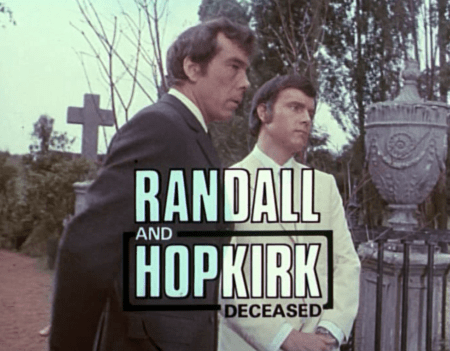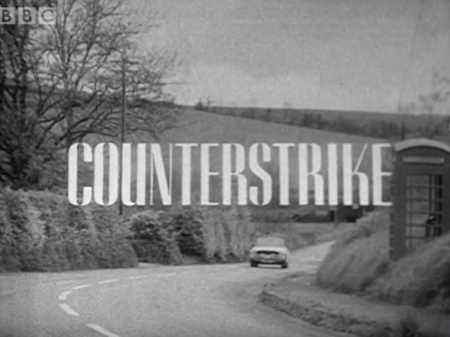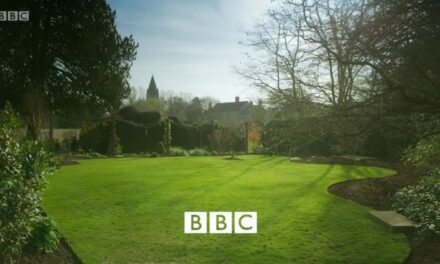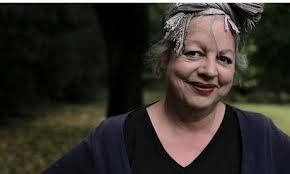Bear with me. I haven’t thought this one through. And I’ve still not yet worked out if I’ll be able to use the word barquentine in it or not…
One of the great things about being in touch with m’colleague Hannah Cooper at CSTonline is that she will flag up things which she thinks you might well be interested in. And they’re all good picks and not too many of them – it’s not a bombardment that leaves you feeling guilty because you can’t act upon what you know is a good recommendation because there’s already too much to read/watch/listen to in the world… and even more of it all the time.
Anyway, the other week her two Hot Picks were a couple of TV-related podcasts [i] which she thought I’d like for different reasons. And she was bang on. One was RetroTube and the other was Spybrary and both were – effectively – all the better because at their core it was about people doing that thing of sharing their enthusiasm for television, but in different ways.
RetroTube is a lovely, charming little idea – a format which I’ve seen variations of before, but this is a particularly enjoyable example of the notion. What we have here are two old friends – Adam and Heather – who, as they explain, come ‘from completely different spheres of geekery [and] unleash their favourite television shows from the 1960s-1980s on each other.’ Isn’t that rather lovely?
So, the one I dipped into concerned the original version of the fantasy/adventure caper series Randall and Hopkirk (Deceased) (1969-1970) – a British film series that was heavily derided by the critics on its original run. But the critics were probably, y’know, grown-ups. Fortunately, I was about five-years-old at the time so I wasn’t reading what the critics said and the notion of a private eye working with the ghost of his late partner whom only he could see or hear was just what I was after in between doses of Ace of Wands (1970-1972) and Pardon My Genie (1972-1973). And I’m still rather fond of it now in adulthood – although, fair dos, I do now understand where the critics were coming from.

Fig 1. Deep down, I know that this is how it should look… [ii]
So, as you can imagine, it’s already been lovely, and now it’s rather interesting because Adam’s take on the two episodes is actually the inverse of what I was expecting… and what Heather was expecting too. And Adam explains his take very clearly. And he does see the flaws and some of the unintentional humour in a show now over half-a-century old… but he’s never disparaging, never nasty, never dismissive because you can tell how delighted he is that his friend is sharing with him something that’s very important to her.
Meanwhile over on the Spybray podcast devoted to spy literature and cinema, host Jeff Quest is having a chat with academic Joseph Oldham, a lecturer in Communication & Mass Media at the British University in Egypt and the author of the volume about British spy and conspiracy television Paranoid Visions (Manchester University Press: 2017). Joseph is doing a different job here – he’s explaining all about series such as Callan (1967-1972), Special Branch (1969-1974), The Sandbaggers (1978-1980), Bird of Prey (1982-1984) and Spooks (2002-2011) [iii] – to an American host who is largely unfamiliar with these series in particular and British broadcasting in general.
But, even trickier, when Joseph starts to throw around arcane acronyms like ATV and ITC, there’s a good chance that he’s going to lose his audience who are more attuned to the work of Len Deighton than the work of Lew Grade. As such, not only does he offer a massively accessible assessment of the virtues of the selected shows, but – at no extra cost – he throws in one of the deftest explanations of the generally baffling and antiquated commercial television network of the 1950s/1960s that I’ve ever heard.
So, two great podcasts. Which cheered me up… because, generally, I still – after all these years – struggle with podcasts. I don’t think I really know what they are…
Hang on, I’m still thinking this one through a bit…
I was introduced to podcasts well over a decade ago by a kind and thoughtful gentleman called Michael Gilroy-Sinclair who was even generous enough to send me a CD with some selected examples for me to sample and find out what was to my taste. He himself had been producing a very fine title – a solo item called the Tin Dog podcast where the approach was the delivery of a pre-scripted talk on a subject – an angle which I found most enjoyable. But with some of the other approaches – then, as now – I struggled…
There’s lots of podcasts where I sample a first episode and never proceed to the second. Sometimes the format doesn’t grab me – sometimes the content lets me down. There’s certain groups which I now gravitate towards less. Group discussions with an assembly of fandom mates tend not to appeal – they often involve ongoing jokes which the protagonists know but which I don’t and so can’t engage with. It’s a bit like going out for a meal in a restaurant [iv] and at the next table there’s a works party with a group of people who work together in an office [v] and they’re laughing and joking and having a great time about not being in the office… but you can’t follow or engage with any of it because it’s all about their little circle of people. And you don’t begrudge them having fun and laughing and enjoying a nice meal and something to drink – goodness knows, they’ve probably worked hard and earned it – but you don’t need to hear it as well.
This kind of overlaps with podcasts which are primarily composed of banter. Or just an entertaining train of thought bounced back between two voices without a sense of direction. It’s a great skill I know. Just to be entertaining with words. But… really? Bantz? Okay – maybe put that one down to me being horribly middle-class and never really listening to Radio 1. Again, what is on offer here is a talent – and a highly saleable one. But I tend to prefer content…
… but content which has been assembled and thought about. This brings me to the vehicle where two people of similar perspectives reckon some stuff to each other. They reckon what’s going to happen next in an ongoing narrative, or reckon what’s in the mind of a show-runner, or reckon what the broadcaster has in mind with scheduling, or reckon who’s going to be on the panel at the next Comic-Con. Often on the basis of very little evidence – and that’s fine because they’re enthused and engaged and this is good, unknown stuff to reckon about.
But where I do really struggle with the reckoning, is where people try to reckon – having watched a show on DVD – what the intent of a particular scene was according to the script. What do you reckon the writer’s intention was? And I find myself ruminating: ‘Well, why don’t you humping put the disc in your computer – which I suspect you own to make the podcast – and open the PDF and find out?’

Fig 3. Look, will you just take the humping disc and put it in the humping computer and just read the humping script PDFs. [vi]
… which is why, as you can see, I struggle with podcasts. For me, locating documentation about a show is what I do. It’s second nature. It’s comparatively easy.
But how would I even begin to make a podcast? I have no idea. I don’t even own a microphone – and I guess you need one of those. I guess you need special software. And short of phoning all my potential listeners individually or resorting to just opening the window and yelling, I have no idea how I’d get my words heard. And all of a suddenly I realise that some things that seem very easy to me are very difficult for the podcasters… while a whole raft of digital and technical skills well beyond my comprehension are as natural to them as breathing. They have their skills, and I have mine. And I think theirs probably make a better set.
And, of course, the other reason that podcasts confuse me is that I don’t know if they’re one-way or two-way forms of communication. Because they come from the internet, I instinctively believe they’re two-way. The internet for me is e-mail. You send an e-mail (“Dear Kim, here’s another blog about podcasts which doesn’t really go anywhere, whatcha reckon?”) – and you receive an e-mail back (“Hey Andrew, that’s fine, nobody else has written anything else this week anyway, I reckon we can get away with it”). Or it’s a forum where people discuss things.
And the podcasters often say “Get in touch” or “Drop us a line” or “We’d love to hear from you”… and I think “Oh good – they’ll want to chat about Counterstrike (1969)”. And of course, most of the time, they don’t. Because it’s more one-way – like a magazine correspondence column, inviting feedback because it’s hungry for content from the audience. But I often still drop them a line anyway. I say “Hello, that was a mighty-fine podcast you did on that show and I’d be happy to listen to some more of the same if you’d like to make them”. And occasionally I do hear back. And – indeed – some of the people I hear from become good friends.
So, I suspect that it’s really all down to me being a bit confused about this notion of one-way or two-way communication. I mean, look down there at the bottom. Go on, scroll down, below RELATED POSTS to where it says LEAVE A REPLY. Because instinct told me originally that this was two-way communication like a message board. But it’s not – most of the traffic tends to be from non-academics. And I reckon that that’s simply because academics don’t have the luxury of the time to use these like message boards, or to become involved in communicative strands when they need to be dispensing tertiary education to the masses. As such, the conclusion I’m starting to draw – although I’ve not researched it in detail – is that academic blogging is a one-way rather than two-way process. That’s what I reckon…
And one-way is a process that I’m used to because of radio and television. The above example podcasts that Hannah recommended and that I enjoyed were finished products with goals and objectives achieved by their conclusion. And because of my experiences, for me that sounds like wireless [viii]. So, that’s probably why part of me feels that I want podcasts to be the one-way radio form that I’m used to and have enjoyed for decades – from the days of BBC1’s The Day of the Triffids (1981) being reviewed on Radio 4’s Kaleidoscope (1973-1998) to people whom I respect like Matthew Sweet, Mark Gatiss, Steven Moffat and Una McCormack discussing the impact of the Quatermass serials (1953-1959) on Radio 3’s Free Thinking (2006-)… which is probably my favourite ever, ever radio discussion programme in the history of everness.
But those are professional things… and so maybe podcasts tend towards the amateur. I mean, heaven forbid, these could just be people enjoying themselves. I mean, these things often don’t feel finished… they just sort of sound like a work in progress… almost as if it’s just some mates have got together and are having some fun about something.
Still pondering this…
I suspect that they’re sharing their enthusiasms about their favourite shows.
And I guess that makes it all okay. It’s just that I’m too stupid to see that. But I’m not entirely convinced.
But I do reckon that the last thing you’d ever catch me doing would just be to take an unresearched, unfinished, unconsidered train of thought without a specific destination in mind and present it as a blog.
And I didn’t even manage to include the word barquentine.
Told you I hadn’t thought it through.
Andrew Pixley is a retired data developer. For the last 30 years he’s written about almost anything to do with television if people will pay him – and occasionally when they won’t. And he’s deeply sorry if you weren’t able to spend the holidays with family and loved ones as you’d hoped, because he knows just how awful that feels.
Footnotes:
[i] podcast (n) digital audio file available for downloading from the internet and playable on a computer or mobile device; (v) to make a digital audio file available online
[ii] Or, for those of you on the other side of the Atlantic
[iii] Or MI-5 (2002-2011) for those of you on the other side of the Atlantic.[iv] You remember doing that, don’t you?
[vi] Okay – I admit, it’s not necessarily that easy. A lot of computers and laptops these days don’t come with disc drives because – hey! – who needs physical media? And even if you do own a machine old enough to offer this facility, you may have decided to enjoy your favourite film series looking all pristine on Blu-ray, and you can’t just take a Blu-ray and shove it in the same PC drive as you use for a DVD… and that would entail additional expense to buy some extra kit and possibly software to enable you to watch and get the PDFs off the Blu-ray. So, yes, it’s a fair cop, again, I’m making something potentially awkward and costly seem very cheap and simple here because you have to remember that I’m still living about a decade behind you people in the future and you’re smarter than I am.
[vii] … but, erm, best not when there’s a pandemic on, eh? Obvs. I mean, I love researching television shows, but even I’m not going out and making it any worse for anyone at the moment.
[viii] wireless (a) lacking wires.









Hi Andrew –
Thank you so much for the lovely review of RetroTube, it really made our day. As people who aren’t professional speakers, it can be really hard to know whether the sound of us talking is engaging or entertaining, so it’s always really heartening to hear when people have enjoyed it.
I hope you get the chance to listen to some more episodes… we reckon the Blake’s 7 and Persuaders ones to be our favourites (at time of writing).
And we do always genuinely welcome people contacting us and we always reply. 🙂
Thank you again!
Adam RetroTube
Hello Adam 🙂
Lovely to hear from you. Thanks for taking the time and trouble to comment – much appreciated. I hope that this finds you and yours safe and well.
Always happy to flag up something that I’ve enjoyed to others who might enjoy it – it’s one of the things that I try to do at CSTonline when I’m pondering a point about something which offers value and I’m attempting to illustrate the notion. I *think* I also flagged it up on some of the fora I visit a few weeks ago. So I hope that other people are enjoying the podcasts too.
Work and some family stuff has not let me enjoy as many podcasts in recent weeks as I’d like to have done but – yes – yours is one that I’d like to revisit because I rather like the format. The one about “The Persuaders!” was one of those I’d noted – mainly because I can’t quite make my mind up about the pros and cons of the series. “The Tripods” was the other one because I’m still rather fond of the show and it doesn’t often get discussed with quite the love and affection I think it deserves.
Please pass my thanks onto Heather as well for such an enjoyable little offering!
Take care and stay safe.
All the best
Andrew
Okay… heard the edition on “The Persuaders!” Yes – massively enjoyable! I also find it interesting that you ask for two different shows to demonstrate a series’ range. That *is* a tricky one in some respects with “The Persuaders!”. I think I’d have gone with “Angie… Angie” as my more serious one and “A Death in the Family” as my less serious one. But very, very much engaged with your comments and conversation. Will listen to some more as time permits.
All the best
Andrew
PS: Can’t figure out how to download these as MP3 (which would be more convenient) so am having to stream as and when I can.
Love that you were introduced to podcasts via a cd! This is envy really since I have never knowingly listened to a podcast (and indeed still try to watch on dvd the stuff that everyone else is streaming.) I think two-way interaction may be over-rated which is a good job because as a retired academic in lockdown I don;t get the response I used to get, at least from students. But writing a blog is good fun in itself as you demonstrate so well.
I know! Podcasts on a CD! Isn’t that mad! All down to the tech… at the time I didn’t have an MP3 player other than the MP3 player build into a portable CD player, so the only way to listen to these in work was to get a whole stack onto a CD and then play them from CD. Indeed, it’s how we still listen to the music in the car – the most convenient method is to compile a CD of six hours of incidental music and then let it play…
Two way interaction is really – as you’d expect – a double-edged sword. Of course, the “good” edge which cuts with you is when Professor Christine Geraghty comments on your blog and you can go “Hoorah!” because years ago you never dreamed that that would ever happen.
I hope you’re safe and well in lockdown and will continue to be so. Thank you for being so kind.
All the best
Andrew
Hello again, Andrew! A most interesting article.
Podcasts are rather strange beasts, aren’t they? I tend to listen to many, as I have a lengthy walking commute to and from work, but they are by no means created equal. The podcast world is a real “wild west” of varying quality. They can run the gamut from slick, polished, edited-to-the-nth-degree productions that could easily qualify as professional radio, to real amateur affairs that can come across as a couple of mates having a rambling natter with little care or concern whether someone else might be listening in. I find that a lot depends on one’s reaction to the host or hosts of a given show…do they have a listenable voice, or at least make an effort to speak clearly and articulately? Do they have not only a passion for their subject, but some actual knowledge or research to back it up? If there are two or more hosts, do they have a comfortable yet not overly “clique-ish” rapport? These kinds of features can either make or break a podcast for me.
While I’m not averse to some well-placed banter in a podcast, the ones that I stick with on a regular basis tend to offer at least a reasonable dose of actual substance. Informed opinions are welcome, as is some semblance of a plan, a theme or – heaven forbid! – an actual outline or loose script. I end up quickly tiring of those that seem too off-the-cuff or lackadaisical, where the hosts fail to do even the barest modicum of research before recording. Some that play in the more bantery end of the pool can remain engaging if at least one of the hosts displays some real knowledge of, or experience in, his or her subject. That feeling of spontaneity, of hanging out with some likable characters as they discuss things of mutual interest, is one of the strengths of the podcasting form, I feel. It can certainly be abused, but, as a counterweight, another point in podcasts’ favor is that there are just so many of them, covering such a broad spectrum of interests that, for any dozen that don’t float your boat, there are sure to be a couple that seem just right, tailor-made to your own tastes.
It seems that in recent years, podcasts dedicated to archive TV have proliferated. And not just the ubiquitous DOCTOR WHO or STAR TREK podcasts (some of which are of course quite good), but ones that specialize in the more obscure corners of the classic television universe.The best of these are a delight to listen to, covering niche programs and topics which rarely get any critical light shone on them in mainstream media. Despite your seeming ambivalence to the form, you yourself have introduced me to some very enjoyable podcasts in this vein, including the above-mentioned RetroTube (which I listened to and enjoyed immensely after you plugged it in a forum thread), as well as the decidedly bantery but still reliably entertaining The Benji and Nick Show. I know that you’ve also given well-deserved praise both here on your blog and elsewhere to the most excellent ITC Entertained the World podcast, hosted by the very knowledgeable Jaz Wiseman, Rodney Marshall and Al Samujh, an example of a podcast with a clear structure, carefully pre-planned and edited, with welcome snippets of behind-the-scenes interviews and incidental music stings. A real treat, that one.
If I may be so bold as to offer a few recommendations, which you may or may not have already heard of…Have you had the opportunity to check out the Round the Archives podcast, hosted by Andrew Trowbridge and Lisa Parker (with several other regular contributors)? It covers a wide range of U.K. telly topics (with the occasional U.S. series thrown in for good measure) and is consistently interesting, somewhat uniquely utilizing a “magazine” style of format. A few others I might recommend – which predominantly consist of interviews with scholars or authors well-versed in the subjects being discussed, or industry personnel either involved in making the programs in the first place, or in otherwise archiving or restoring them – are From the Archives: A British Television Podcast and The Pod of Delights (admittedly limited in focus, honing in on a niche within a niche, but very nicely done all the same).
Hello Jeff! Hope all is well with you! 🙂
I think the use of podcasts depends on the shape of one’s life. I listen to fewer at present because I’m not commuting in a car at present – and that’s where I *tend* to consume one each day. And – yes – it’s all varying quality. Much like television. You’re bang on in your excellent description. And I think we want different approaches for different subjects at different times – like surveying the night’s TV viewing and pondering “Am I in the mood for drama or comedy or news or documentary?”
“Casting” of a podcast with multiple hosts is an art. I tend to prefer a discussion between voices that are distinctly different – be it in tone, age, gender, background, nationality… all of which basically come down to perspective. The classic line-up for me in many ways is the mentor/novice approach – a model that I’ve found to be successful and satisfying on many occasions, and which “RetroTube” is a superb example of.
I do think that – by and large – I have a need to “like” the hosts, to have a reason to want to spend time with these people. They need to entertain or inform. By and large, a sharing of the passion can be sufficient – but when there’s so much of it on offer, the product needs and edge which puts them over and above to win my time.
I tend to like the more off-the-beaten-track items – one of my oldest and dearest friends Anthony McKay put me onto “Fusion Patrol” because it was covering “Doomwatch” and the analytical approach taken by this podcast lent itself extremely well to a science-based drama of that nature.
Benji and Nick are two massively talented people and I have a lot of time for their work anyway, and I do dip in and out the podcast – again, depending mainly on the subject under discussion.
Thanks for the recommendations. I’d been so tempted to mention more good examples in the above piece – but, no, I felt it was more effective to boil it down to these two examples that Hannah flagged up and which both embraced the concept of presenting a show to a new audience in different ways. “Round the Archives” is one that I dip in and out of regularly; I had the pleasure of meeting Andrew and Lisa a few years back and they were both lovely, charming people. “From the Archives: A British Television Podcast” is similarly one that I do catch now and again. “Pod of Delights” is one that somebody mentioned to me just before Christmas but – as yet – I’ve not had chance to delve into the delights of. It does sound nicely niche.
Anyway, take care and stay safe. Good to know that there’s other people out there enjoying all this amazing creativity. As I say, I wouldn’t know where to start…
Andrew